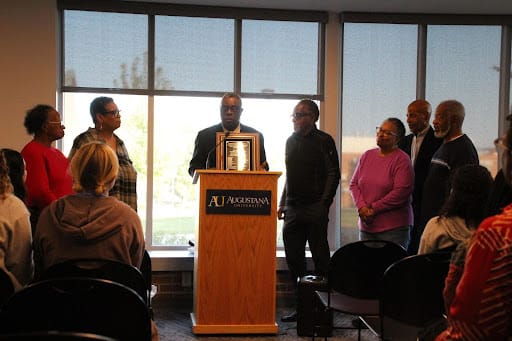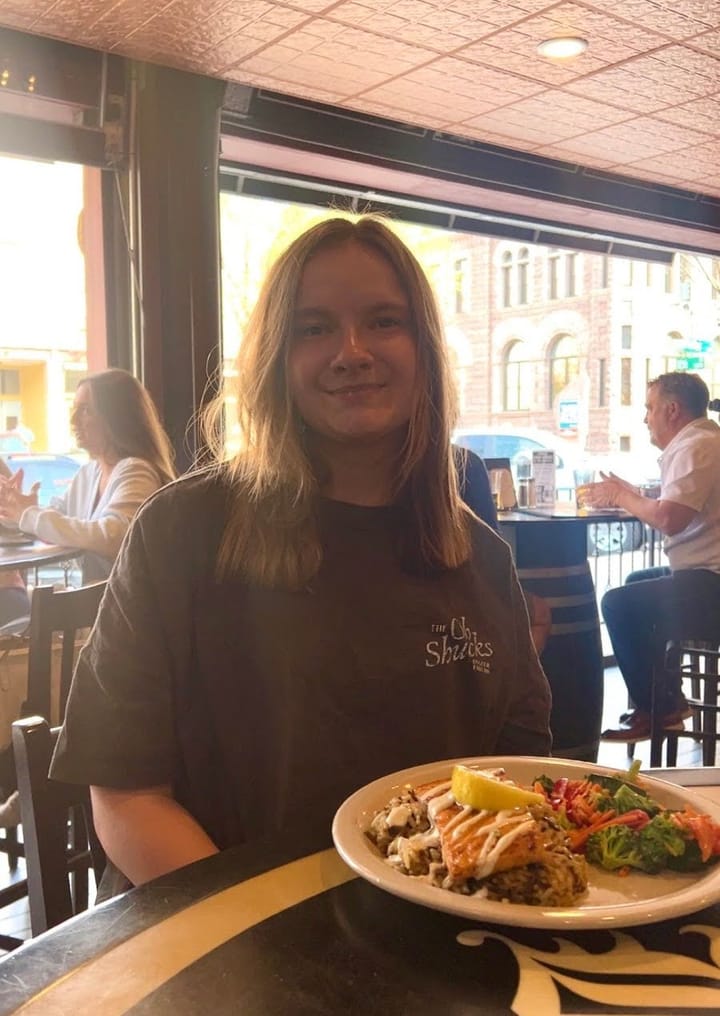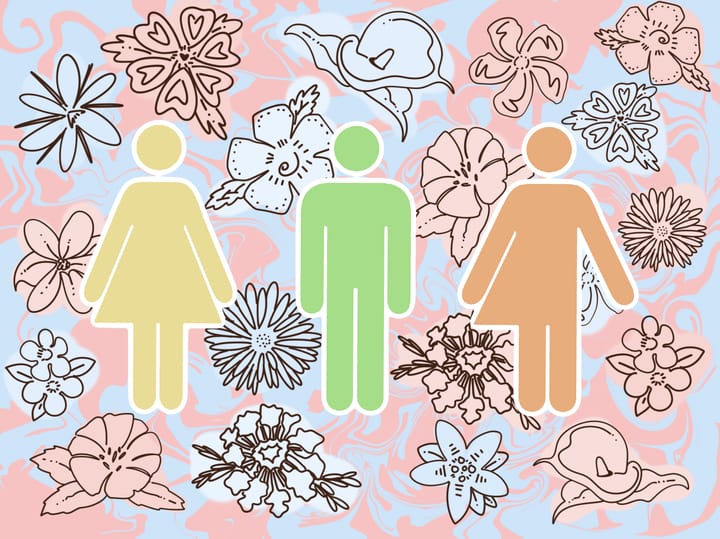Augustana unveils affinity space, honoring 1968 United Soul legacy

On the night of the unveiling of the new affinity space, the lower level of Solberg buzzed with life as 75 students from various affinity groups spilled out of the brand-new room. Laughter, singing and dancing filled the scene. This lively celebration was everything the founders of United Soul dreamt of 50 years ago when they were students at Augustana working toward creating a more inclusive campus.
Founded in 1968 by Black and Native American students at Sioux Falls College (now the University of Sioux Falls) and Augustana, United Soul emerged from a desire for greater representation and inclusivity on campus. History professor Will Wright helped rediscover the history of United Soul through a collaboration with the South Dakota African American History Museum.
“They made some requests of the college administrations in the 60s,” Wright said. “One of those requests was to have a dedicated space on campus where they could meet, gather, be comfortable, be themselves, so in some ways, the dedication of the affinity space is sort of that goal, which wasn’t realized then, coming to fruition now.”
When planning of an affinity space began, members of the Department of Diversity, Equity and Inclusion hoped to create a space for affinity groups like the Black Student Union, Gender Sexuality Alliance and more to have meetings, study and relax.
“From there, it just kind of sparked into something bigger,” Tyra Hawkins, assistant director of Diversity, Equity & Inclusion, said.
Willette Capers, assistant vice provost of Diversity, Equity and Inclusion, highlighted the challenges that historically marginalized students face in her speech at the unveiling, emphasizing that the affinity space will serve as a supportive environment where these challenges can be acknowledged and addressed.
“In creating this space, we recognize the truth of our shared history,” Capers said. “We acknowledge the ways in which the voices of unrepresented students have been stifled over the years, the stories left untold and their contributions undervalued. We are here to change that. This affinity space stands as a declaration that every student, regardless of race, ethnicity and gender, religion or background deserves to feel seen, heard and valued.”
Although the opening ceremony’s goal was to dedicate the space, it also fostered connections and created a stronger, more supportive community.
“This space will evolve, grow and become whatever our students need it to be,” Capers said. “It will be a place of resilience, joy and transformation. To every student who walks through these doors, know that you are valued.”
In an academic environment where students of color often face the pressures of code-switching and scrutiny, the affinity space stands out as a necessary refuge, Spencier Ciaralli, sociology professor and aid in United Soul research, said.
“The expectations placed on students of color can be overwhelming,” Ciaralli said. “It’s exhausting to feel that everything you do might be seen as a reflection of your entire racial community.”
Ciaralli explained that this initiative not only addresses the immediate needs of marginalized students but also fosters a culture of solidarity and mutual support, reinforcing the university’s commitment to inclusivity.
For the future, Hawkins stated that they are set to receive additional funding for decorations and improvements, aiming to make the space more welcoming. ASA recently approved a grant for the room, allowing them to purchase a TV and sound bar. The furniture for the space, except new chairs, were hand-me-downs from the old Viking Grounds.
“This affinity space is not only about survival,” Capers said. “It’s about thriving. It’s a space for vision, for creativity, for dreaming boldly about the future. In this room, we will cultivate leaders, thinkers and innovators.”
This dedication marks a pivotal moment in Augustana’s history, bridging the past and the present.
“Today, we honor those who fought for change and representation,” Hawkins said. “Their determination and unwavering spirit have carried us to this moment.”
A plaque will hang in the affinity room, honoring the work United Soul strived for, serving as a gentle reminder for those who spend time in the room of those who came before them.
As students and staff begin to settle into the new affinity space, a new chapter begins, promising a nurturing environment for all students and a renewed commitment to the ideals of inclusion, representation and community.



